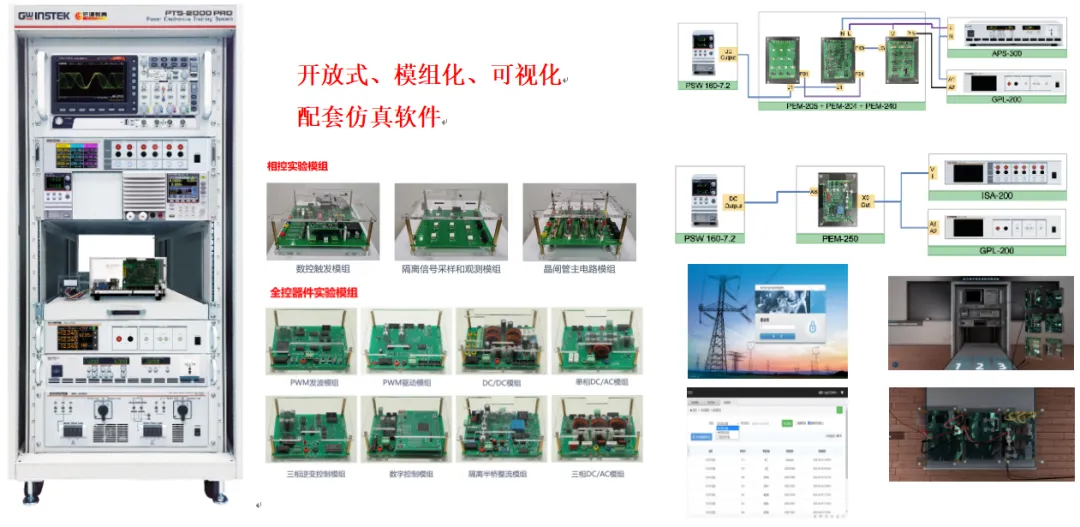On April 26, the Anhui Province Robot Competition – Microcontroller and Embedded Systems Competition officially commenced, with 645 teams competing online across the province. As a technical support unit for the competition, Anhui Mangke Education Technology Co., Ltd. was deeply involved in the entire process of the event, providing professional technology and innovative services to create a high-quality competitive platform for teachers and students in higher education, facilitating the deep integration of subject competitions and university teaching.
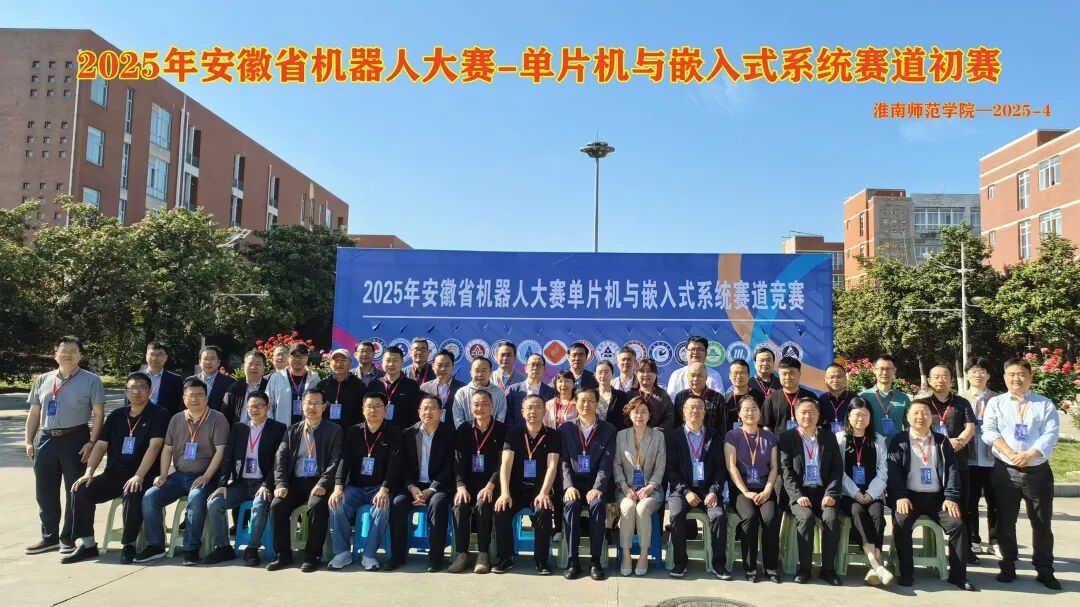
On the morning of the event, the opening ceremony officially began under the host of Yang Xingming, Deputy Secretary-General of the Anhui Province Robot Competition Organizing Committee. Yang first extended a warm welcome to the participating teachers and students from universities, expert judges, and the technical support team, briefly introducing the process of the opening ceremony and the significance of the competition. He emphasized that subject competitions are a key vehicle for assessing the teaching outcomes of universities and stimulating students’ innovative thinking, hoping that universities will promote teaching and learning through competitions, jointly enhancing the quality of talent cultivation in the field of robotics.
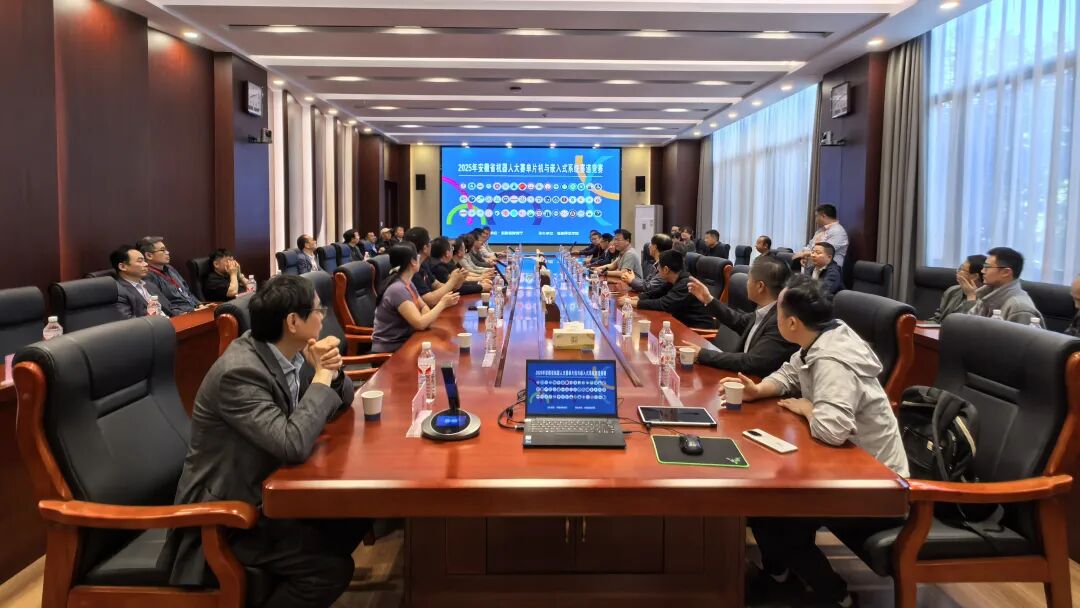
Subsequently, Lu Xianwen, Director of the Academic Affairs Office of Huainan Normal University, spoke on behalf of the school. He pointed out that subject competitions occupy an important position in the talent cultivation system of universities. This competition not only provides students with a platform to showcase their professional skills but also serves as an important opportunity to promote academic exchanges among universities in the province and advance the development of disciplines. The school will actively cooperate with all parties and fully support the development of the competition, and in the future, it looks forward to strengthening cooperation with more universities to share competition resources and teaching experiences, jointly exploring innovative talent cultivation models.
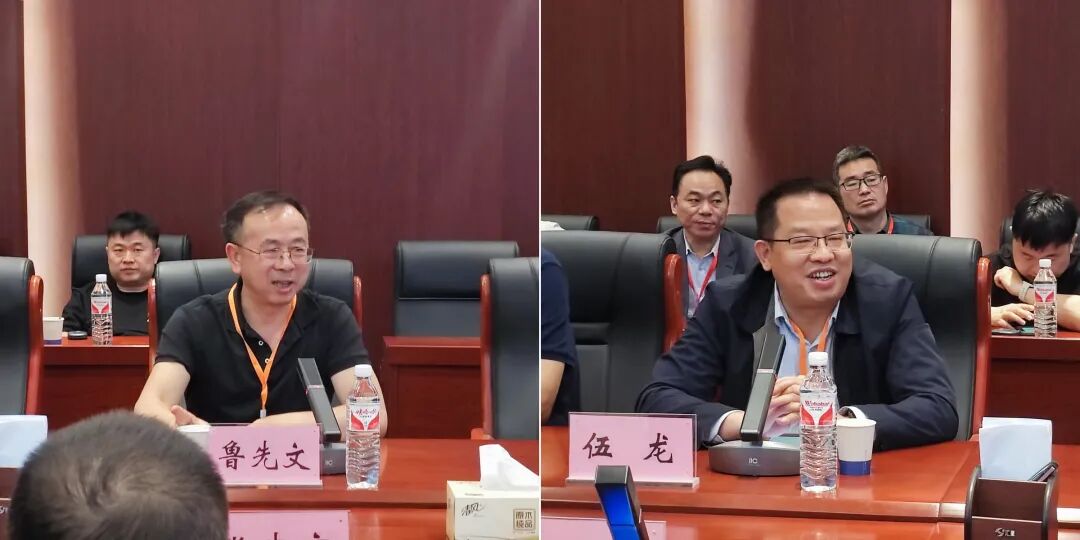
Next, Wu Long, Dean of the School of Mechanical and Electrical Engineering at Huainan Normal University, spoke on behalf of the organizing party. He warmly welcomed the participating experts and teams and provided a detailed introduction to the school’s deep accumulation in the fields of robotics technology, microcontroller, and embedded systems education. Wu promised that the school would strictly adhere to the competition requirements, meticulously organize the event, and ensure fairness and justice, providing a high-quality competition environment for teachers and students. At the same time, he called on university teachers to actively guide students to participate in such competitions, enhancing students’ comprehensive abilities through practical exercises.
The General Manager of the technical support unit, Anhui Mangke Education Technology Co., Ltd., Wang Guoxin, promised in his speech to fully guarantee the technical and service support for the preliminary round and to provide higher-level technical support for the upcoming finals, ensuring the fairness and professionalism of the competition.
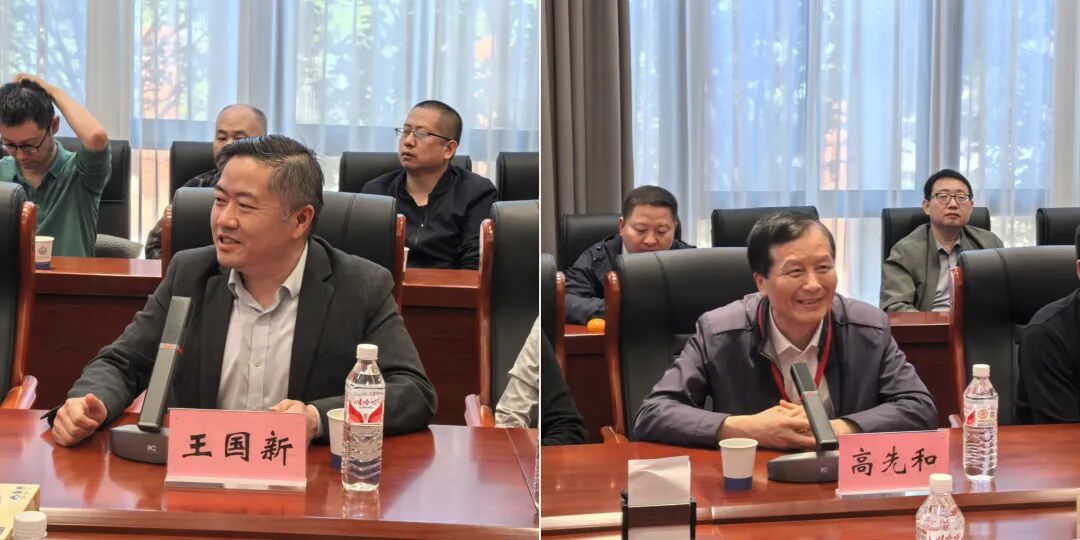
At the end of the opening ceremony, Professor Gao Xianhe, Director of the Microcontroller and Embedded Systems Competition, provided an in-depth interpretation of the competition rules. He stated that the competition focuses on assessing students’ comprehensive abilities in hardware construction and software programming, which aligns closely with the teaching objectives of related majors in universities. He encouraged university teachers to guide students to practice through competitions, integrating competition content into daily teaching to enhance students’ ability to solve practical problems.
After the opening ceremony, some teachers conducted online inspections to ensure fairness in the examination, while some expert teachers jointly formulated the scoring criteria and standards for the examination papers. At 1:30 PM, 26 expert judges began the online evaluation of over 600 teams across the province.
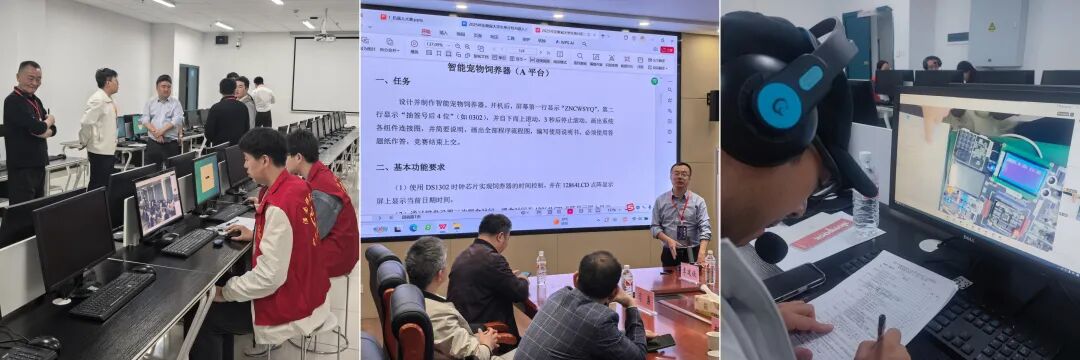
As the date of the finals (May 24-25) approaches, Mangke Education stated that it will continue to uphold a professional, rigorous, and responsible attitude, meticulously preparing to provide more comprehensive technical support and services for the finals, looking forward to witnessing more exciting moments with all participating teams and contributing to the successful conclusion of the Anhui Province Robot Competition.

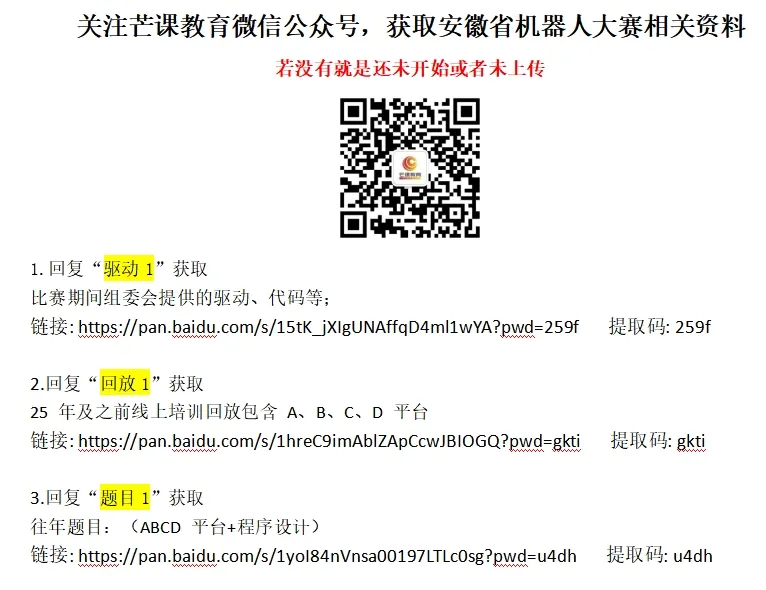 Microcontroller and Embedded Systems Competition and Product Introduction
Microcontroller and Embedded Systems Competition and Product Introduction
The minimum system board is divided intoA,B,C,D,E five categories of platforms. The competitionA platform: uses an 8-bit microcontroller as the processor; the competitionB platform: uses a 32-bit microcontroller as the processor; the competitionC platform: uses an FPGA chip as the processor for the embedded platform; the competitionD platform: is a multi-node Android tablet application platform built in a typical distributed manner; the competitionE platform: uses microcontrollers, DSP, and other digital chips as embedded core controllers for the competition platform.
The functional modules consist of input and output devices, including keyboards, sensor modules (digital or analog signals), LED, LCD, digital or analog input/output signal control units, motor drivers, and other application modules.
Students need to complete hardware construction and software code writing based on the tasks. The competition provides relevant hardware technical manuals, programming software, and other related debugging tools, but does not provide example routines for the development boards used (special device drivers are provided in the competition questions), cultivating students’ ability to develop independently through the competition.
Competition platform: The platform and related modules used in the finals must be brought by the participating teams or provided by the technical support unit. There are preliminary rounds for the competition, and the finals require a unified platform (either brought by the teams or provided by the technical support unit), which must pass the pre-competition review organized by the organizing committee before being allowed into the competition venue.
Platform introduction:
Microcontroller embedded systems (meeting the competition requirements forA,B,C competitions)
Microcontroller embedded systems are based on a project-based design concept, capable of meeting the teaching and competition needs for 8-bit microcontrollers, 32-bit microcontrollers, and FPGA embedded systems. (C platform FPGA system, also for the Belt and Road and BRICS Skills Development and Technological Innovation Competition, integrated circuit competition – FPGA competition platform) Product advantages:
Eliminates the drawbacks of Dupont wire hardware connections, allowing for rapid application system construction in a WYSIWYG manner.
Meets the needs of teaching practice and competition
Integrates allA/B/C platform functional modules
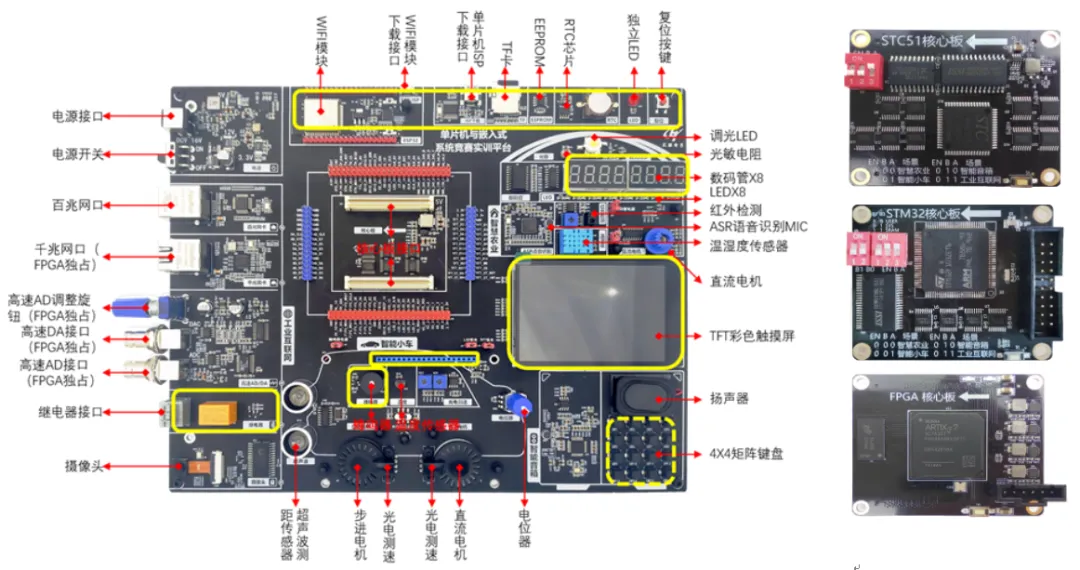
Mobile Internet Development Platform (Android Development Platform), (meeting the competition requirements forD competition)
Android development platform, hardware includes functional nodes and main control nodes. Functional nodes are based on 16-bit or 32-bit microcontrollers, equipped with sensor modules and transmission modules (WiFi or Bluetooth), capable of independently completing data collection and driving output functions (can be considered as having wireless access capabilities ofA,B platforms); the main control node is a mobile device such as an Android tablet or phone. Multiple functional nodes can connect to a single main control node via a WiFi local area network or Bluetooth network.
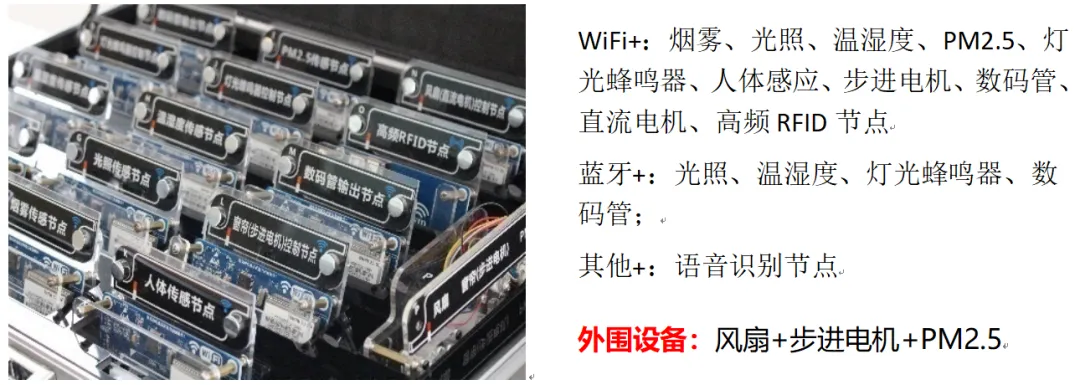
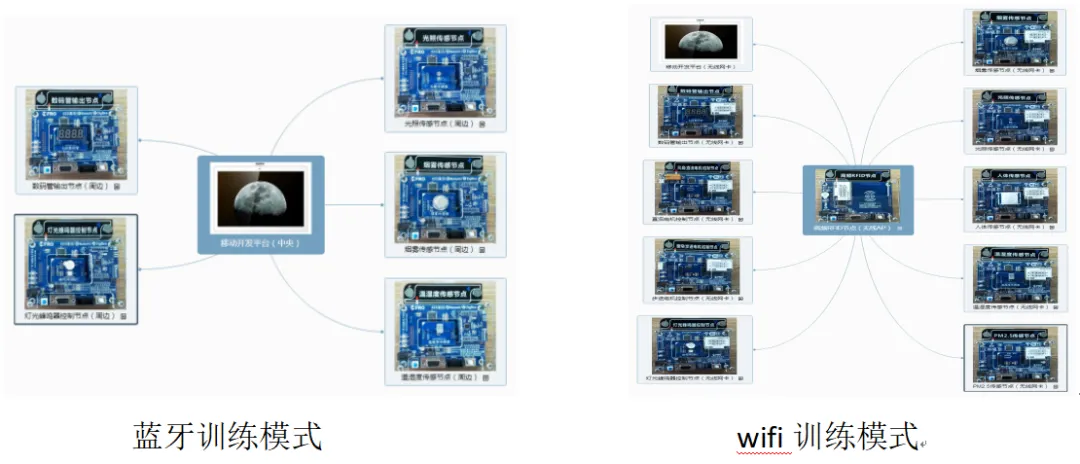
Power Electronics New Energy Comprehensive Training System, Power Electronics New Energy Innovation Kit (meeting the competition requirements forE competition))
(also meets the requirements of the China University Power Electronics New Energy Power Conversion Application Technology Competition)
In the strategic context of “New Engineering” construction, to promote the teaching reform of power electronics technology-related majors in universities, and to cultivate applied and innovative talents, Mangke Education has partnered with GW Instek to launch the Power Electronics Development Design and Training System PTS-2000 PRO. This system adopts a modular design, allowing users to complete verification and innovative experiments in multiple fields, including basic power electronics technology, new energy generation technology, and switch power supply design and development, by selecting different modules (Power Electronics Kits, abbreviated as PEK). The PTS series provides instruments such as oscilloscopes, AC/DC power supplies, isolation channels, and AC/DC electronic loads for users to build experimental systems and measure experimental results. Through the circuit models provided by PTS, users can learn circuit design principles, with comprehensive product manuals and experimental guides, enabling users to clearly understand the theoretical basis, objectives, content, and steps of the experiments, greatly facilitating various related teaching and research experiments.
